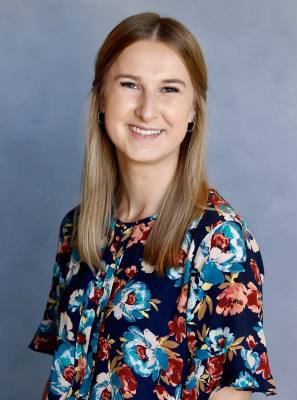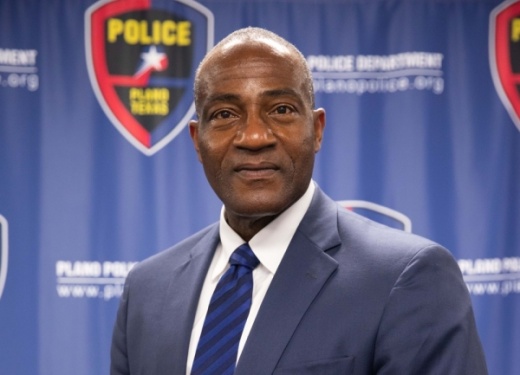Q: You’ve served in other positions since your time in Plano. Is there anything you’ve learned specifically that you feel will serve you well coming into this role?
A: The city that I am currently employed in Amarillo has a lot more challenges in areas when it comes to crime, when it comes to traffic safety [and] when it comes to dealing with homelessness and drugs—and it's a challenging assignment. It's a different community. There are some approaches out there that I think that, should we see those things go up, that we may be able to implement here to address some of those things.
Q: What kinds of things would those be?
A: We have a specific program in place in Amarillo to deal with violent offenders. So we had to establish a partnership with our federal partners. We were having some issues with the district courts when we would put ... habitual, violent offenders [away], they were just back out on the street again, and it took long periods of time before their cases would go to court. They could be out for years for aggravated assaults, even for murders, and they're out committing other crimes. So now with these violent offenders, especially if they're felons who have gun charges, we go around the district courts and we file federal charges on them. And then a federal magistrate or judge can outright deny them bond, their cases are adjudicated much faster [and] they do a much greater portion of their sentence. So we probably don't need to do that here. Plano has a good relationship with the district attorney's office and the courts here, and they take crime pretty serious here and there's their space in our jail. That was another issue we had. And Amarillo is a unique environment because it's a little over 200,000—not quite as large as Plano—but it's split between two counties. ... One county, it has more poverty, it has more crime than the other county, and it's just a lot of issues there in that community so a lot of things that we don't face here. But should those things pop up again, like implementing the strategy with our federal partners, that's something that we can try to use here as well. I don't think we need it in Plano right now, but you never know.
Q: What kind of issues have you seen arise here in Plano in your various roles?
A: I started here in 1994 as an officer in and then I was a sergeant and I was promoted to lieutenant captain and then assistant chief. I worked patrol assignments. I worked in traffic investigations. I was on the SWAT team. I was on the bomb squad, working in administrative assignments. When I was promoted to assistant chief in 1996, I was the only assistant chief. At that time one assistant chief was pretty much over all operational areas: patrol, investigations, support services. I was assistant chief for 10 years and probably for the first seven, I was the only one. And then we added a second assistant chief and those duties were kind of split. So I'm familiar with pretty much all operational areas of the police department.
Q: When you’re looking at the Plano Police Department, do you see any areas that might have room for improvement or that you might be looking at first as you step into this role?
A: Not anything that jumps out at me. I think all organizations can improve, of course. My plan when I come in is to meet with the staff [and] meet with the officers, ride out with the officers as much as I can, [and] also talk to people out in the community and other departments. We work closely with the fire departments. So [my plan] is to learn and to listen and then see some areas we may need to improve in. Looking at Plano Police Department, there’s nothing that I see ... that we need to go change right now, that is imminent at all. Plano has a very low crime rate. They do a great job with traffic safety. They have good partnerships out in the community. So yeah, there's nothing that I think, "We’ve got to come in and we’ve gotta jump on this right now."
Q: Do you feel that the student resource officers that are on campus is one of those good partnerships?
A: Plano has a great relationship with all of our schools. But when I left that was one of the things that I did believe that we needed. We needed SROs in our middle schools. Since I've left those have been added and I think that from the perspective of school safety is just terrific. And but we will certainly keep that strong partnership. We have to.
Q: Can you speak to your military experience?
A: I left the active-duty military in 1994. And when I was in the military, for most of that time I was in Explosive Ordinance Disposal, which is basically bomb squad. I was an officer. And during my active duty service, I served in Europe, I was in Greece [and] I served in Korea. And then I sort of did several different installations here in the United States. One of them was Fort Sam Houston in San Antonio. So at that point, I was back in Texas, I had been here about 10 years and I'm thinking, “If I find a job, I want to stay in Texas.” And I did. I found one with Plano police. When I got out I was an officer, so it's not like you have an enlistment. You have to kind of ask, "Can I leave now," and they [say], "OK, you can resign, but you have to go into reserves for at least four years." And I ended up staying in the reserves for about 14 years. And then when Operation Iraqi Freedom was going on, I was deployed to Iraq as a reserve. I was called up to go do that. But I retired from the military from the reserves in 2007. So I don't have a commitment, or [am] not involved with that now, but altogether active and reserve about 24 years of military service.
Q: Does your 24 years of military experience impact how you might lead a police department?
A: I think any job that we have helps prepare us better as leaders, but there’s no question: [the] military puts a lot of emphasis on leadership. You have to be very flexible, especially when you're in combat situations. You learned the things go this way, what they call the doctrine, but when you're actually over in an area where there's combat, none of that works. You've got to be creative and come up with different ways of making things happen out there. And so I think that's very helpful as well. There's no question in my mind that the fact that I served in the military has helped me get to this point in law enforcement.
Q: Does coming back to this department feel like coming home?
A: Absolutely it feels like coming home. Yeah, absolutely. Even this room feels like home, except you guys got new chairs.
Q: Is there anything you’d like to share with readers?
A: My wife and I are excited about coming back home, and we want to try to live up to the confidence that the city leadership had ... in bringing me back on. And so, yeah, we’re excited.





